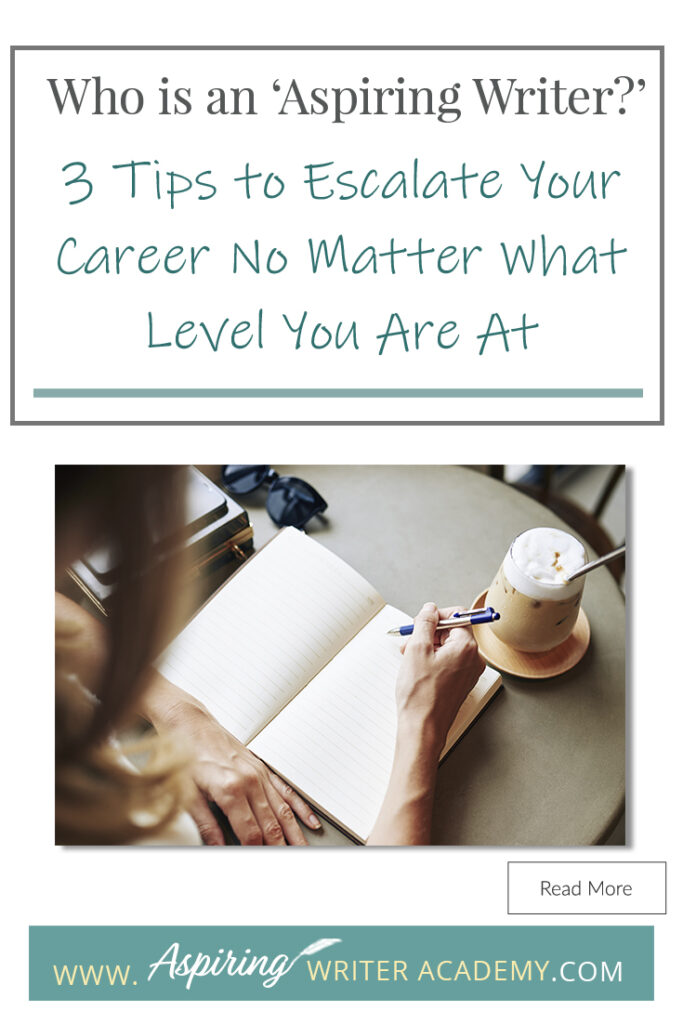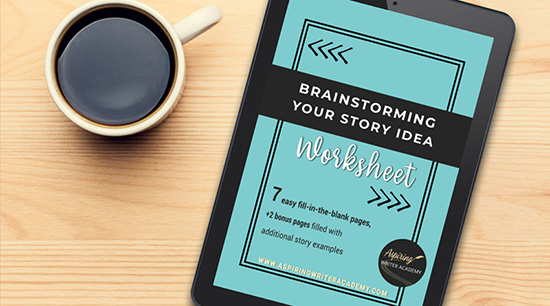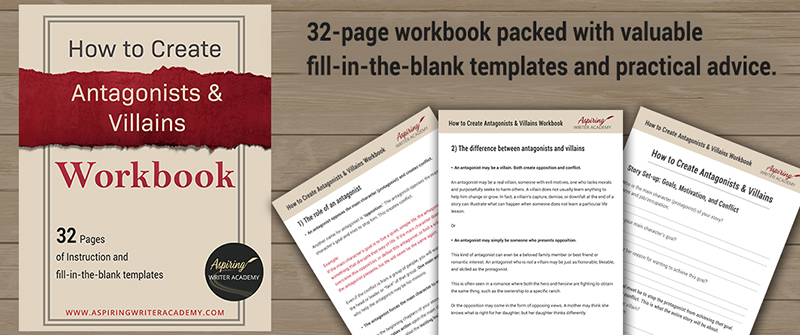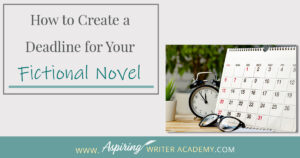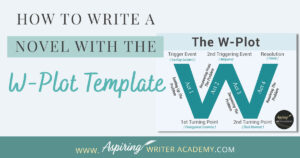Who is an ‘Aspiring Writer?’ 3 Tips to Escalate Your Career No Matter What Level You Are At

Are you an ‘aspiring writer?’ Or do you think that term only applies to newbies? It is surprising how many writers sabotage their careers because they think they know everything they need to know while successful writers recognize that you should never stop learning.
In our post, Who is an ‘Aspiring Writer?’ 3 Tips to Escalate Your Career No Matter What Level You Are At, we discuss the habits of successful writers so you can stand out from the crowd and become one too!
In the post below we will discuss how to:
- Re-evaluate Your Writer Mindset
- Develop Habits of Successful Authors
- Draft a Successful Career Plan
1) Re-evaluate Your Writer Mindset
Who are you as a writer?
Are you just starting out? Do you belong to any writing organization groups? Have you taken classes or attended writer’s conferences?
Are you traditionally published or self-published? Have you sold five books? Twenty? Fifty? Have you won awards or best-seller status titles?
When we discuss ‘Who is an Aspiring Writer?’ it does not matter where you are in your writing journey – we are all aspiring writers.
Or at least we should be.
We should always be aspiring to reach the next level of our writing.
I attended an all-day writer’s conference a few years back and the first thing the keynote speaker asked was, “How many people here are multi-published?”
About twelve people in the room of one hundred raised their hands. Next, she had those twelve stand up and said to the writers who remained seated, “Do you see these authors? These are your role models because even though they have already published multiple books, they still came today—they showed up—for they know a writer should never stop learning. There is always some tidbit of information that you can glean from others no matter how successful you are.”
The problem for many authors is that their ego gets in the way. They take a couple of classes, maybe even graduate college with an MFA, attend a few writer’s conferences and then (even if they haven’t published), think they know how to write and feel it isn’t necessary or worth the cost for continued education.
Some of the best information and advice for writers comes from attending a writer conference in person. This is where the insider tips and newest trends are shared. You might even find a brilliant piece of marketing advice while chatting in the hallway or elevator with others or while seated at the tables for dinner, sometimes even while standing in line for the bathroom.
Ask yourself: Are you an Aspiring Writer who will continue to strive to reach the next level of your writing? Are you willing to keep evolving and growing in your writer journey even if you have already published dozens of novels?
The path to becoming a successful published author is a journey, not a destination.
2) Develop Habits of Successful Authors
- Keep reading.
Many of the most successful entrepreneurs and top CEOs around the world will tell you that one of keys to their success is to keep reading. Articles, newspapers, books, blogs, and listen to audio books, podcasts, etc. Never stop learning, never stop seeking out new information.
As writers, it is also important to read the newest releases to see the trends in publishing, study other author’s writing styles, and find comparable titles for your book proposals.
A serious writer will also continue to read books on the craft of writing and re-read the best ones over and over again to keep their techniques fresh. When a writer gets stuck on their story, even after publishing multiple titles, sometimes what is needed is to go back to basics and refresh on writer techniques they already know but just hadn’t put into practice with this new story idea.
Most serious aspiring writers build a collection of how-to writer books fondly referred to as their ‘writer library.’ Some of these books can also be found for free in the public library.
- Keep taking classes.
For the same reasons listed above, a serious aspiring writer should continue to take classes and courses either in person or online. Ideas inspire ideas. Sometimes it is not the material presented in a class but the way a speaker or keynoter presents what is being said or taught. Perhaps an idea you are already familiar with might be seen from a different perspective or angle that you hadn’t thought about.
- Keep attending writer conferences.
Once you have published multiple books, a wise author will realize the value of attending writer’s conferences is not in what classes are being offered, but in the networking. The conversations with other writers at conferences are priceless.
And to help make the conference cost-effective, you can offer to teach a couple of classes which sometimes earn you a paycheck in addition to attending the conference for free. Teaching and helping others is also a way to ‘give back’ to the writing community that once taught you and your time is almost always appreciated.
You might also be able to sell your books at the conference bookstore or book table.
- Meet with an accountability group of other authors.
Successful aspiring writers (and entrepreneurs) are also a part of an accountability group, sometimes called a ‘Mastermind,’ where they meet with other authors they know and trust to discuss writing, trends, tips, and successful business practices.
Many times, you will hear of groups of 3 or 4 writers who will go on an annual retreat at a local hotel or resort, and they will help each other brainstorm the outline for a book to work on for that coming year. If you belong to a small critique group, perhaps you could plan a getaway for this purpose once a year.
- Write Regularly.
While you may not be able to write every day, a serious aspiring writer will write as regularly as a published author with a deadline for a publishing house. Set your own deadlines. If too much time passes between writing sessions, you may forget what you were working on and waste too much time getting back on track.
Plan out your week ahead of time and schedule or block out time on your calendar or in your day planner which you will devote to writing your novel. If you miss a day, plan how you will make up that writing session.
The beauty of being a writer is that you have the freedom to set your own schedule and rearrange that schedule however you want. You are the CEO of your writing career. If you want to write at midnight, so be it. Or if you prefer to write at 4 a.m., you can do that too!
3) Draft a Successful Career Plan
Just as a serious aspiring writer needs an outline or plot, a plan for your novel, (or for you pantsers, at least a direction to go in), you also need a career plan—a written plan listing what you will do to take your writing to the next level.
Some authors create a new writing plan every 90 days, which is easier and more realistic to focus on than a plan for a whole year. And some authors have daily plans, weekly plans, monthly plans, quarterly plans, and yearly plans in addition to a 10–20-year vision of success plan. Do whatever works for you, but it is important to have a vision with written action-plan goals.
It’s not enough to say you want to be a successful writer. You need to have a plan (a roadmap) that will realistically get you there.
Some considerations:
- How many days a week will you write? Or how many words will you write? How many finished novels will you write this year?
- Which books do you plan to read (both fiction and non-fiction)?
- Which classes or conferences do you plan to attend this year?
- Will you send in a proposal to teach a class at a conference this year?
- How many book signings will you attend? How many blog tours or book tours? Or publicity events?
- What other marketing ideas will you implement to boost book sales or gain exposure? Will you create a new author website or start a blog or podcast? Do you need to order new bookmarks? Start an email newsletter or switch your newsletter to an upgraded hosting platform?
- How often will you meet with a critique group? Or will you pay a free-lance editor for editing your manuscript?
- How often will you meet with an accountability or Mastermind group of trusted friends who are on a similar level as you to help brainstorm novels and trade business or publishing tips?
We hope you have enjoyed Who is an ‘Aspiring Writer?’ 3 Tips to Escalate Your Career No Matter What Level You Are At and that you have gained some valuable tips for healthy writing habits that will escalate your career far into the future.
If you have any questions or would like to leave a comment below, we would love to hear from you!
If you would like additional help, you may want to download our Free Brainstorming Your Story Idea Worksheet.
Do you find it difficult to create compelling antagonists and villains for your stories? Do your villains feel cartoonish and unbelievable? Do they lack motivation or a specific game plan? Discover the secrets to crafting villains that will stick with your readers long after they finish your story, with our How to Create Antagonists & Villains Workbook.
This 32-page instructional workbook is packed with valuable fill-in-the-blank templates and practical advice to help you create memorable and effective antagonists and villains. Whether you're a seasoned writer or just starting out, this workbook will take your writing to the next level.
Our Goal for Aspiring Writer Academy is to help people learn how to write quality fiction, teach them to publish and promote their work, and to give them the necessary tools to pursue a writing career.
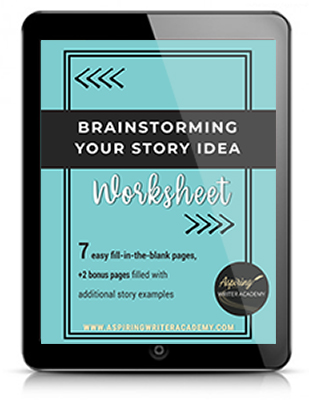
ENTER YOUR EMAIL BELOW
TO GET YOUR FREE
"Brainstorming Your Story Idea Worksheet"
7 easy fill-in-the-blank pages,
+ 2 bonus pages filled with additional story examples.
A valuable tool to develop story plots again and again.
Other Blog Posts You May Like
How to Write the Midpoint of Your Novel (and Avoid a ‘Saggy Middle’)
20 Items to Bring to Your First Writer’s Conference
How to Find a Great Story Idea in 4 Easy Steps
How to Write a Novel While Working Full Time
Slingshot Week: How to Set New Goals for Writing in 2023
The Pros and Cons of Writing Holiday Fiction (Collections & Anthologies)
Fiction Writing: How to Find a Critique Partner/Group
The Money-Making Author Mindset: Strategies for Financial Growth and Success for Writers
How to Prep for NaNoWriMo (National Novel Writing Month)
How Writing Prompts Can Improve Your Fictional Story
3 Levels of Goal Setting for Fiction Writers
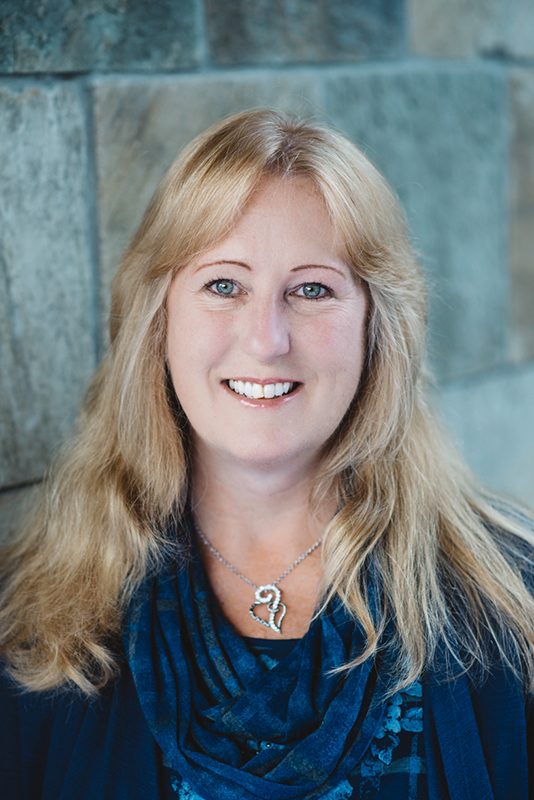
is a multi-published author, speaker, and writing coach. She writes sweet contemporary, inspirational, and historical romance and loves teaching aspiring writers how to write quality fiction. Read her inspiring story of how she published her first book and launched a successful writing career.
